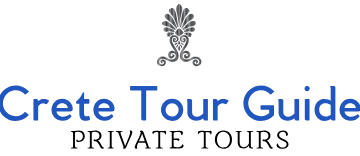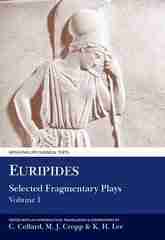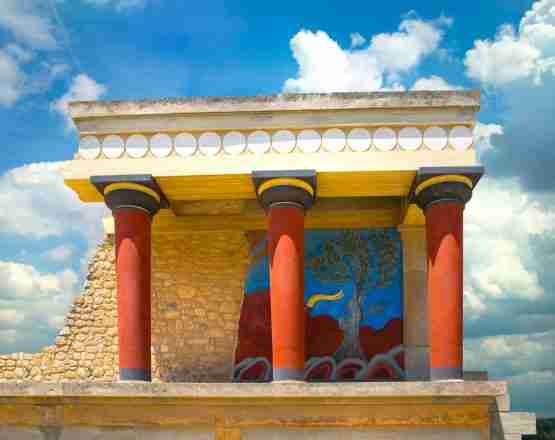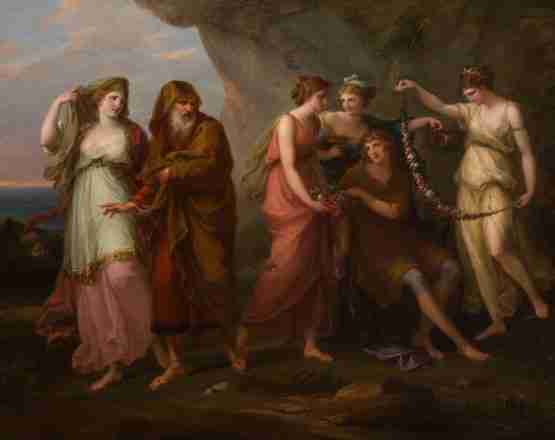Polis, Democracy, Cannibalism and Labyrinths
Euripides Tragedy The Cretans
Only shards remain of Euripides’ tragedy Cretans. Yet the fragments that we do have reveal a drama that is intriguingly packed with logical and argumentative peculiarities.
Europa is abducted by Zeus in the shape of a bull. The god brings her to Crete, from there union Minos and other 2 boys are born.
Europa then marries the Cretan king, Asterios.
Mnos in turn when coming of age stated that he be king of Crete, asks of the Gods to send a sign !
Poseidon, who promptly sends a bull. Yet contrary to his promise to the god, Minos does not sacrifice the animal to Poseidon but keeps it. Infuriated, the god makes Minos’ wife, Pasiphae, desire the bull of the sea.
Daidalos the engineer makes a wooden cow. The queen slips into the cow, the bull arrives, and the two beget a monstrous child called Asterios, the Minotaur.
In the chorus
Son of Phenician-born Tyrian Europa and of great Zeus, you who rule over hundred-citied Crete, I have come here from a most divine temple, the roof of which is supplied by native cypress wood blended with bull-bound glue into precisely fitted beams cut with Chalybean axe. I lead a sacred life ever since I became an initiate of Zeus Idaios and the herdsman of night-wandering Zagreus, completing his raw-eating feasts and holding torches high for the Mother of the mountain, I was consecrated and named a celebrant of the Kouretes. I wear all-white clothing and avoid the generation of mortals, I do not go near burial-grounds, and I guard myself against the eating of living foods.
The priests of Zeus thus say that they lead a “pure” or “sacred life”
The eating of raw meat, vegetarianism, and cannibalism: they all appear to be intimately related in Euripides’ drama. But this has appeared to be quite a problematic approach
One needs to approach the principles regulating the devouring of flesh not in Minoan Crete, but in Euripides’ city.
In ancient Greece, meat was not everyday nourishment. The Athenians, who were blessed with more meat than most other Greeks, received almost all of it from sacrifice, and their diet consisted mainly of plant and dairy products
Yet the killing and eating of animals is fundamental to the order of the polis and of the world. Through the sacrifice of animals, the cosmological hierarchy of god, man, and animal is maintained. The animal, which is ontologically subordinate to man, is slaughtered; human beings eat the meat; the gods above are offered other parts of the body and receive the smoke.
Sacrifice thus secures the position of man downward and upward, between beasts and gods.Specifically, human beings are different from the god and the animals in roasting or boiling meat. Animals eat raw flesh, gods eat ambrosia.
And this makes grilling the foundation of civilization itself.
Does it?
I do sometimes wonder…
The order of the universe and the political community is dependent on the human institution of killing animals, cooking the meat, and eating it. Civilized people cook meat; uncivilized people eat it raw. Food and sacrifice are thus intimately related.
Cannibalism does not heed the norm that people eat animals, not people; vegetarianism refrains from flesh; omophagia omits the proper treatment of meat, that is, cooking it.
It was often thought that a hunter would acquire the qualities of the prey.
But when the animal was not wild or hunted but instead domesticated the perceived need to make the animal “consent” to the sacrifice by inducing it to “nod” when drinking from a water vessel, suggests that the Greeks perceived some sort of affinity with the animal.
Unlike other cultures
We have seen that vegetarianism, cannibalism, the eating of raw meat, and omission of sacrifice subvert the cosmological hierarchy. This disorder is incarnate, embodied, in the creature in the labyrinth: bulls do not eat meat, Greeks do not eat raw meat, civilized humans do not eat human flesh. Yet the bull-man monster, the Minotaur, is incorrect in every way: he devours raw human flesh.
Somewhere there in the abyss of the labyrinth where the flesh-eating animal-human monster lived, Theseus had to confront find his way out of the underworld safely and reach the light again, travel to Athens and establish democracy the myth states
The beginning of cities polis
sources:
Euripides, Cretans frag. 472e.16—26 Kannicht
to read:



